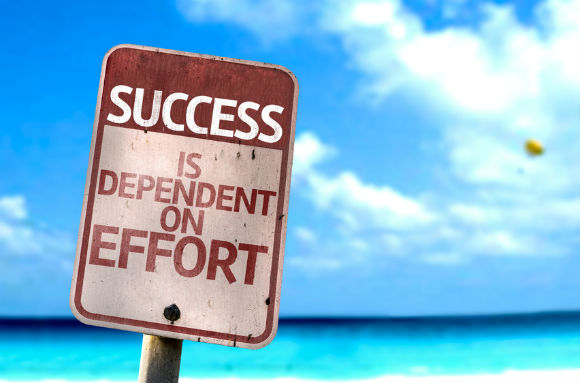I chose to read How to Fail at Almost Everything and Still Win Big by Scott Adams. I actually purchased this book for very cheap because I am truly interested in learning how to deal with failure and ‘bounce back’. I have been trying to work on it, but I sometimes take failure as a stopping point and do not remember that failures only make you stronger.
1) What was the general theme or argument of the book?
The general theme of the book is that you cannot plan out your track and expect all rainbows and sunshine along the way. You will go through many ups and downs as well as many failures and some successes. The most important part of a journey is the process itself and although success may be different for each person, success comes from the effort that you put in and the trials that you go through. Adams teaches the reader all of this throughout the book.
2) How did the book, in your opinion, connect with and enhance what you are learning in ENT 3003?
This book greatly relates with what we are learning in this course, beginning with the importance of trials. For example, my first elevator pitch was poorly executed for many reasons; there were loud noises, toilet flushes and people talking in the background. I was also swaying back and forth and not wearing business clothes. To make it worse, I didn’t have anything memorized and I was just blabbering on for over 90 seconds. For my second trial, there were no noises in the background and I had put on business clothes. I was not totally satisfied with my word choice and some of my sentences, so I can’t wait to finish putting together an even better 3rd trial. It took me multiple trials to get to my success. I would definitely call my first two trials failures, and I think this book really relates to that part of the course. Also, I have been through a lot of failures regarding my business idea in general. These include trying to learn how to compete with Apple, having to change the Florida law and somehow change the design to not copy other competitors. This book made me realize some of my failures that I hadn’t previously thought about. Overall, I do realize how my failures ended up being parts of my one-day success story.
3) If you had to design an exercise for this class, based on the book you read, what would that exercise involve?
If I were to design an exercise based on the book, I would make one called The Failure List. This exercise would make students list out all of the possible failures that they can think of for their business idea. They would then analyze each one and write what they think the benefit of the failure in the long-term could be. I think this would really get the students thinking about how failures are primarily the stepping stones leading to success. It could open their eyes to a lot of possibilities and make them have a more positive outlook on their business idea.
4) What was your biggest surprise or 'aha' moment when reading the book? In other words, what did you learn that differed most from your expectations?
When reading this book, the biggest surprise for me was the fact that Adams preached about setting up a system rather than creating goals. This was mostly discussed in the chapter named “Goals versus Systems”. I thought it was surprising, and a little weird, that instead of setting up goals for success and failing along the way, Adams described a system as a better way to succeed. He discussed how we should focus on the process of reaching success instead of the final success, which related to creating a system. He seemed like a person who didn’t totally believe in goals, due to the “dreaming” aspect of many entrepreneurs. It’s great to dream, but setting unrealistic goals may not help in the long run. I was very surprised by reading that the day-to-day things will help more when trying to reach the end goal of success. I am glad that I got to read these words of wisdom as I now have a different outlook on goal-setting.

Hey Carlie,
ReplyDeleteI think you did a great job with this reading reflection! Although I did not read the same book as you, I feel as if I still learned the valuable lessons provided by yours due to the excellent description you wrote about it. I think this book teaches a very valuable lesson that every successful entrepreneur has lived out- sometimes our greatest successes come from our greatest failures.
Hey Carlie! I read the same book and I'm so happy to see you got as much out of it as I did. It really helped me relax about my future and my current place in life, after all we can manage to fail a BUNCH of times and still come out on top! I also really got a lot out of his system oriented idea rather than being goal oriented. Great Job!
ReplyDeleteHey Carlie! It was really interesting to read about your perspective on Scott Adam's "How to Fail at Everything and Still Win Big." Personally I chose another book to read but now I really want to dive into this one thanks to your analysis. I completely agree with Adams system instead of goals plan. I think it is easy to say your are going to do something or have an empty dream without putting any actual effort behind it. If you want to live your dreams you have to be willing to put everything on the line. Great job again!
ReplyDelete